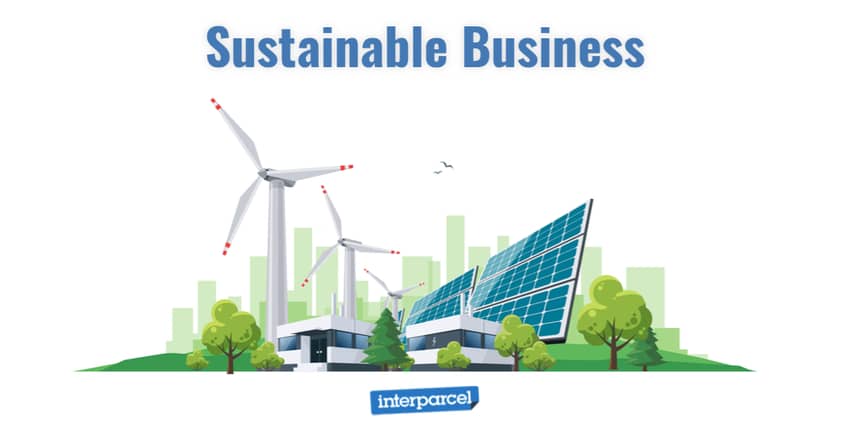Recent research conducted by CouriersPlease revealed that 9 in 10 Aussie consumers are more likely to purchase ethical and sustainable products. Another 85% of consumers want retailers and brands to be "more transparent about the origins and sustainability of their products and whether they are engaging in ethical practices."
What does "sustainability" mean in business?
Sustainability refers to doing business without negatively impacting the environment, community, or society. Its focus is to meet the needs of today without compromising the ability of future generations to meet their needs of tomorrow.
The goal of a sustainable business strategy is to make a positive impact on at least one of the following areas.
- The effect a business has on the environment
- The effect a business has on society
For businesses to become sustainable, they need to focus on long-term strategies for making a positive impact on the environment or society.
Goals businesses can work towards could be: cutting emissions, use sustainable materials or use green-certified office products.
Why should businesses go sustainable?
Going green is not only good for the environment but it is also good for business.
Deloitte Sustainable Research found that 40% of consumers are willing to pay a premium for products and services that align with their values and lifestyle. On top of that, consumers are willing to change their shopping habits to reduce environmental impact and increase sustainability and recycling.
What companies are going green?
- Shopify has done a lot of work on making their business sustainable. They have implemented a 'carbon negative commitment' where they invest at least $1 million USD yearly to carbon sequestration and in 2018 moved all their data servers to Google Cloud where Google matches 100% of the energy consumed by the cloud with renewable energy.
- CouriersPlease has developed a partnership with textile recycling service, Upparel, to provide at-home collection for household items to minimise landfill waste.
Some examples of ways to make your business more sustainable
There are small but effective changes to get your sustainability journey started;
Reduce, reuse, recycle
An easy solution you (hopefully) have already implemented. Reduce waste by making easy swaps such as instead of using plastic cutlery and plates, provide glass and ceramic alternatives.
Reuse items whenever possible. Refilling your printer cartridges instead of buying new ones can help manage your waste.
When reducing waste or reusing products isn't possible, recycle what you can. Have a separate bin for recycling in a convenient location.
Make energy-efficient upgrades
Becoming energy efficient not only reduces a companies carbon footprint but also reduces your energy bill.
Easy changes such as; switching out your old bulbs for long-lasting LED alternatives which consume 75% less energy, using laptops instead of desktops can reduce energy intake by up to 80%, and automating your light usage to motion sensors to limit wasted electricity.
Switch to green web hosting services
It is said that Data Centers and Cloud Computing are the second-largest contributors to carbon emissions after the aviation industry. Luckily, you have a choice over where your business's data is kept, it is possible to choose a carbon-neutral host. For example, data processed by Google Cloud has zero net carbon emissions.
Buy carbon offsets
Carbon offsetting allows businesses to invest in environmental projects in order to reduce their carbon footprint.
You can figure out how much carbon emissions you should be offsetting using a calculator such as; CarbonFootprint.com. You then can purchase that amount through companies such as GozAround Green and Terrapass.
 Are you affected by the Sendle service suspension? We have an immediate shipping solution for you!
Are you affected by the Sendle service suspension? We have an immediate shipping solution for you!










 Facebook
Facebook Twitter
Twitter Instagram
Instagram Linked In
Linked In YouTube
YouTube